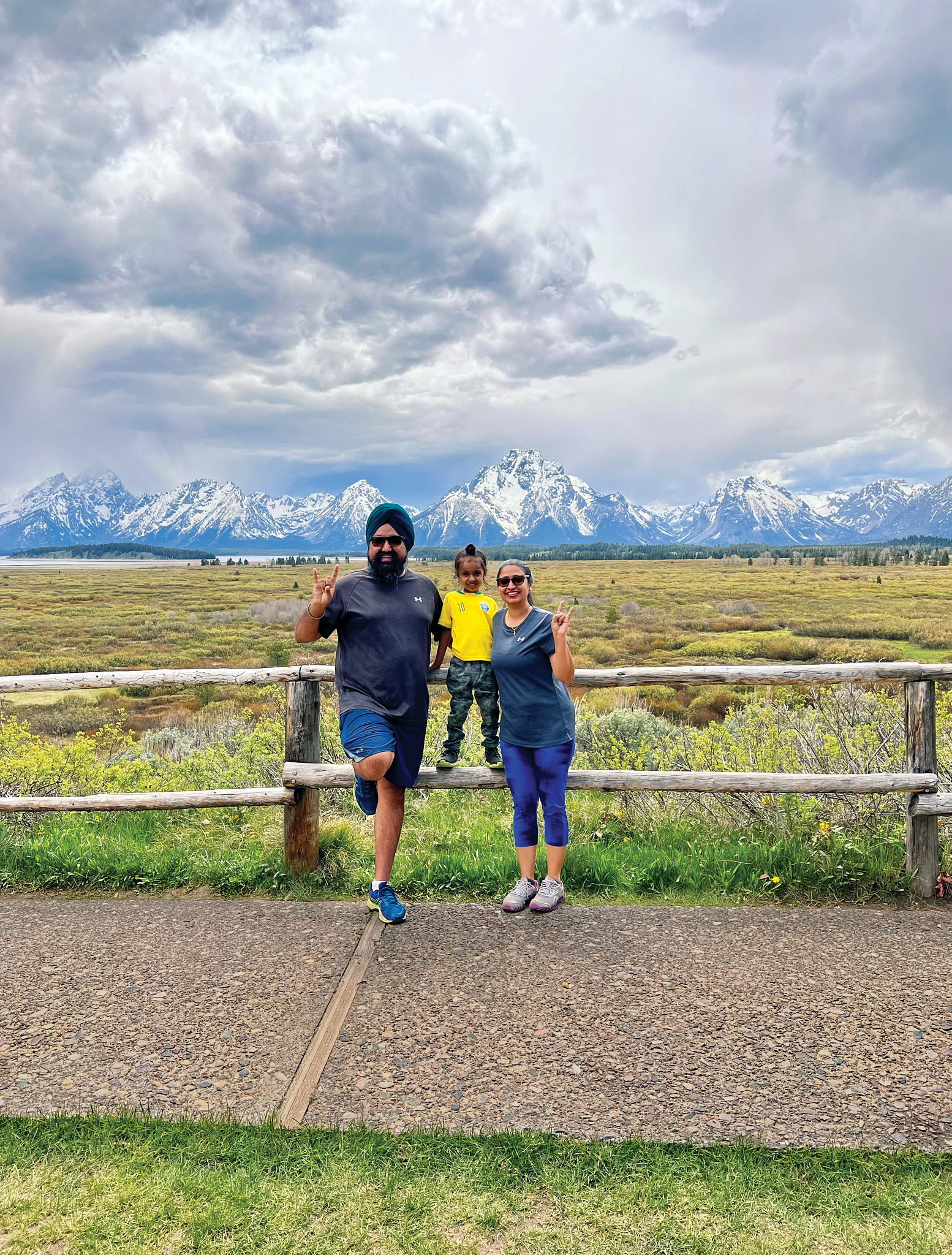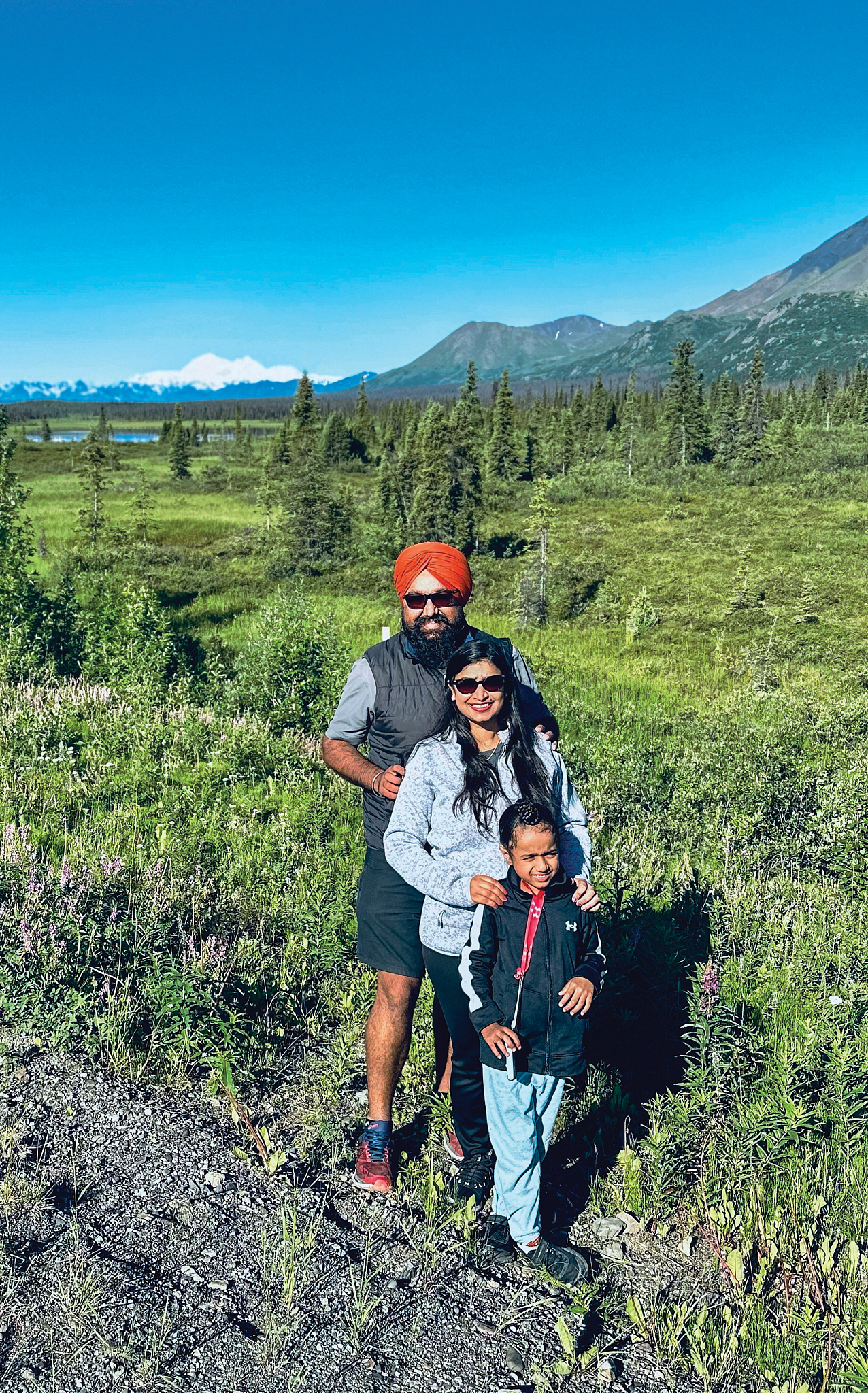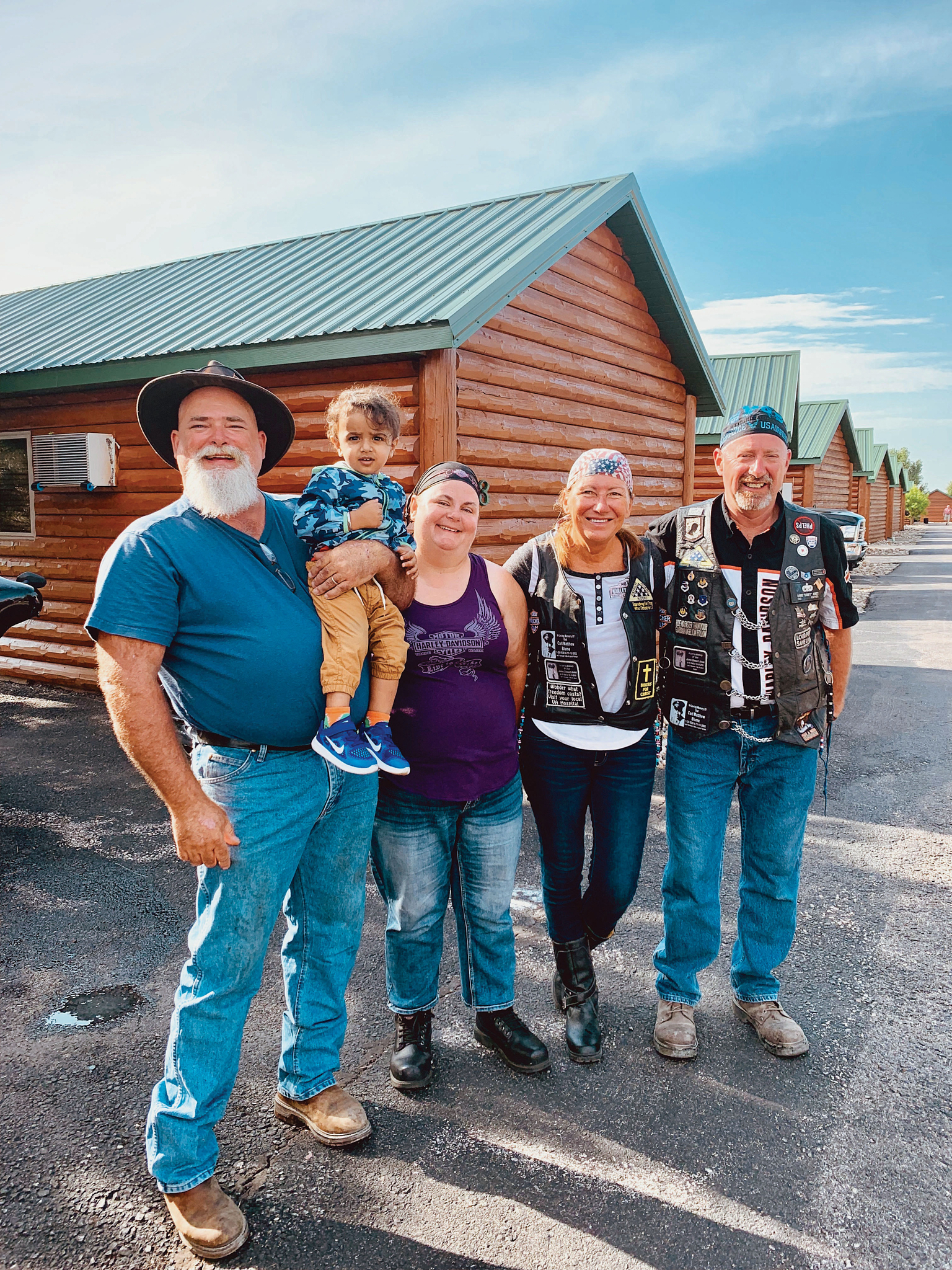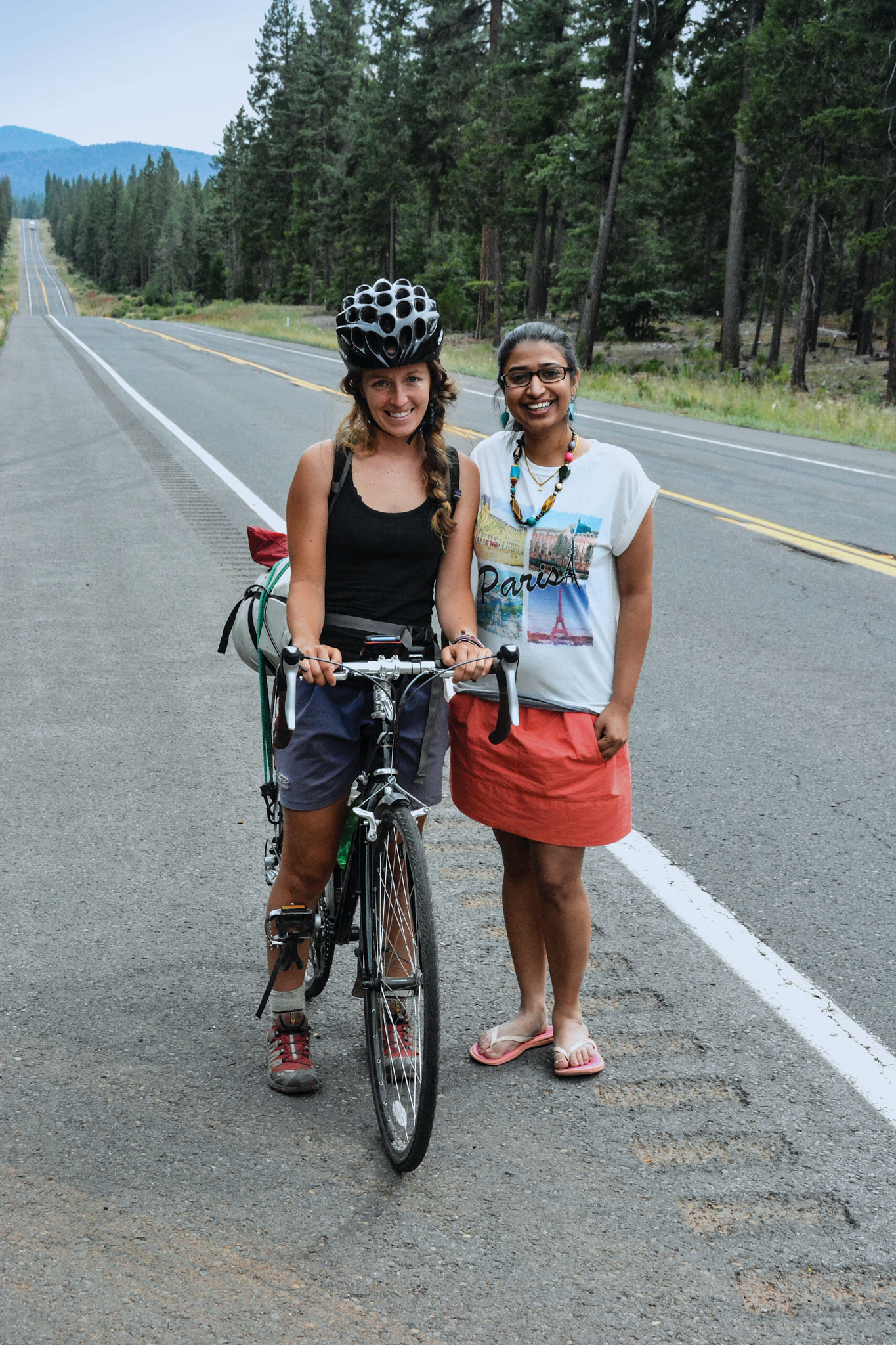A Longhorn Family Explores Their New Home Country One State at a Time

At home, Gagandeep Singh and Aman Sandhu struggle to find an empty spot on their fridge. The entire surface is covered in magnets from places they have visited in the U.S. and abroad. Around the corner is a mango-colored wall with framed photos and collages from their travels—pictures of Gagandeep, Aman, and their 5-year-old son, Anhad. Upstairs they have a collection of handmade items from every country they’ve visited. These collectibles and galleries represent the valuable memories the family made while on their road trips around the country and the world.
To the family, travel is so much more than just a vacation. It’s their therapy, their family time, and their way of connecting with the country they now call home.
“For us it has always been a way to have those candid conversations, deal with what life brings to you, which is money challenges, loss of family members, living away from the culture,” Gagandeep says.

Gagandeep, MBA ’22, and Aman, MFA ’15, Life Members, met at the Punjab Technical University in Punjab, India, where they crossed paths at several creative competitions—Gagandeep acting and directing theater and Aman drawing and singing. After graduation, they reconnected over Facebook. Eventually, they got married and moved to Texas, where they both earned graduate degrees from UT after fulfilling a dream to attend.
Gagandeep is on an H1B skilled worker visa which has to be renewed every three years, and Aman is on an H4 visa which is dependent on Gagandeep’s H1B. There is always a chance the renewal won’t come through. If their visas don’t get renewed, they will have 60 days to pack up all their things and move back to India with their son, so they take every opportunity to travel and explore while they can.
“[If] the paycheck we get is one part of the American dream,” Gagandeep says, “this should be the other part.”
At just 5 years old, Anhad has seen more states than most Americans do in their lifetimes. According to a study conducted in 2016, the average American has only been to 12 states—and Anhad has visited all 50 states, 17 countries, and three continents.
For every place they visit, they have a checklist of things they want to see, from national parks to festivals, ways to explore nature or learn about the destination’s history, and—always—a Sikh temple. Their checklist has led them on adventures that ended up with their having breakfast with the mayor of Española, New Mexico, and becoming friends with a biker group in the Badlands. None of these experiences and interactions would have happened if Gagandeep wasn’t as adept at breaking the ice with strangers.
“He loves to talk,” Aman says, laughing. And more than once, Gagandeep’s need to start a conversation has led to a meaningful connection.

On the road near Burney Falls, California, they once passed a woman biking on the shoulder. They drove past her but decided they wouldn’t be able to sleep if they didn’t find out where she was going and if she would be OK for the night. They turned around and learned she was biking from Mexico to Canada on a budget of $10 per day. They gave her a few snack items they had in the car and went on their way.
But again, they felt like they had to turn around. They found her again and forced her to take all the cash they had on hand—about $200. The woman and the family are still connected, and their money helped her get back home to Switzerland when she was robbed.
Initiating conversations like these also allows them to counter assumptions they hold about others and assumptions others might hold about them.
As part of Sikh culture, Gagandeep wears a turban, and Anhad wears a patka (a smaller version of a turban). Aman says that Anhad gets mistaken for a girl oftentimes when he isn’t wearing his patka, and he has to correct people.
But it never bothers them. “There are so many different types of people in the world: different tribes, different cultures that we don’t know. So, if we took this 8,000-mile trip to America, it is our responsibility to go out there, so more people see us, more people talk, [and the] more they relate,” Gagandeep says.

Despite every state line crossed and passport stamped, Texas is still the place they want to call home. Gagandeep says one of his favorite parts about the state is the similarities between Sikhs and the traditional cowboys.
Sikhs are known for their turbans, while cowboys have their cowboy hats. Sikhs and cowboys are both known for their connection to and protection of land. Both groups wear a weapon on their hip traditionally: The Sikhs have their kirpan (small sword), and the cowboys are known for the pistol in their holster. Perhaps most importantly, both groups are known for their hospitality. In Punjab, a state in India with a primarily Sikh population, they are known for their community kitchens and generosity toward guests and visitors—an echo of southern hospitality across the world.
Along with all these similarities to their culture, Texas is home to The University of Texas at Austin, the place to which Gagandeep felt so connected the moment he stepped on campus. He says “hook ’em” isn’t just a hand gesture, but a symbol of community.
When they travel, they always wear Longhorn shirts. Aman says it’s like a safety blanket for her, and she knows it can always be an icebreaker.
“I’m not sure if the other people thought less of me before, [and] I don’t know if they think more of me if I wear burnt orange. But I, myself, feel more confident that others are thinking more of me,” Gagandeep says.
Aman says there are many things they hope Anhad learns from these experiences. She wants him to learn how to talk to people the way his dad does and how to share his own story while also listening to the other person’s. She also wants him to be open to new perspectives, whether with nature or people.

In more ways than one, Gagandeep and Aman seem to be living the American dream. They both have stable jobs; they own a house and a car in the suburbs of Frisco; and they have raised a sweet son. But to them, that dream means something more.
That’s why their backyard is filled with plants that they learned about for the first time while traveling, and why Gagandeep has been fighting the HOA about turning their front yard into a garden, too. That’s why they have a bookshelf of books from every country they’ve visited. That’s why instead of sitting in front of a TV watching a sitcom or a movie, they sit in their living room planning their next trip, wondering how soon they can leave.
“There will never be enough time. There will never be enough money. There will always be enough stress, [but] this is one way to take care of it. For us,” Gagandeep says, “it works.”
CREDIT: Courtesy of Gagandeep Singh and Aman Sandhu (5)





